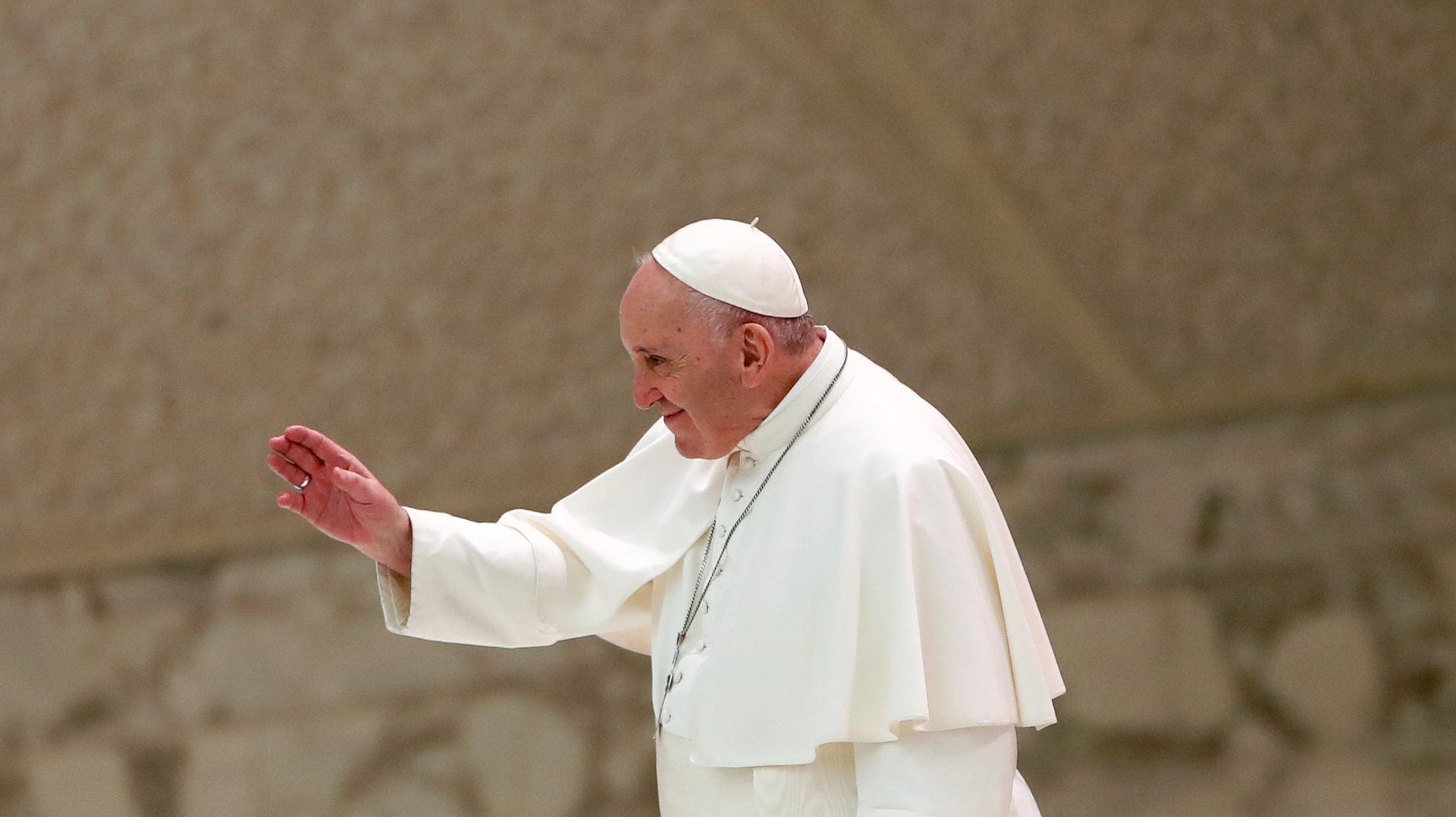Pope Francis is backing a new movement to redefine capitalism as a force for good
Capitalism has been condemned for many of the world’s evils, from massive income inequality to climate change. But self-interest wasn’t the core idea of the economic system first codified by Adam Smith in the 18th century. Avarice became coupled with capitalism in the 1980s, fueled largely by Nobel prize-winning economist Milton Friedman’s theory that the singular goal of businesses is to maximize profits for shareholders. In short, it was the argument that “greed is good.”


Capitalism has been condemned for many of the world’s evils, from massive income inequality to climate change. But self-interest wasn’t the core idea of the economic system first codified by Adam Smith in the 18th century. Avarice became coupled with capitalism in the 1980s, fueled largely by Nobel prize-winning economist Milton Friedman’s theory that the singular goal of businesses is to maximize profits for shareholders. In short, it was the argument that “greed is good.”
Now a new global alliance, with Pope Francis as its moral leader, is pushing to rescue the heart of capitalism and reorient it as a force for social good. The founding members of the Coalition for Inclusive Capitalism with the Vatican comprises large corporations like Bank of America, BP, Estée Lauder, EY, Johnson & Johnson, Mastercard, Merck, Salesforce, and Visa. It also includes grant-giving bodies like the Ford Foundation and the Rockefeller Foundation, government bodies, and the International Trade Union Confederation, the world’s largest workers’ rights group.
Each organization has committed to changing aspects of its business model, which will be audited annually via a scorecard system. Mastercard, for instance, is committing to be more intentional about working with African Americans. It plans to invest $500 million in Black communities and will increase annual spending with Black suppliers by 70% over the next five years. DuPont, for its part, will make sustainability a required criteria throughout its value chain by 2030.
The 230 action items published on the coalition’s website denote the many ways capitalism has gone astray and ways it can be fixed, to tether the bottom line to the health and wellbeing of workers and customers and the planet above all.
Lynn Forester de Rothschild, the coalition’s founder, contends that the alliance isn’t another caucus exclusive to big corporations. Any enterprise that believes in the need to reform the prevailing capitalist agenda can sign up to be part of the movement. “It’s available to the corner pharmacy who wants to make a commitment to hiring one person of color, or being carbon neutral,” she explains. “They don’t have to do what Johnson & Johnson or Merck does. They’ll do what’s comfortable to them.”
Forester adds that though the leader of the Catholic Church serves as it main advisor, the coalition is firmly non-sectarian. “This is of course informed by the [Christian] gospel, but it speaks about what Aristotle was speaking about 300 years before Christ about humanity’s need to be responsible for each other,” says Forester, also known socially as “Lady Lynn,” by virtue of her marriage to a British knight. Her net worth was more than $600 million in 2016, according to Business Insider.
Forester, who is also the CEO of the holding company E.L. Rothschild, says getting the Vatican involved promises great momentum. Hearing the Pope speak at a 2016 business forum convinced the coalition that he would offer the “moral poetry” to the coalition’s initiatives, in the same way Martin Luther King Jr.’s words fueled the US civil rights movement. Indeed, in his gentle manner, Pope Francis has proven to be among the most persuasive critics of broken systems. From his 2015 encyclical Laudato si’ to a recent TED talk, his words have fired up activists seeking to address socioeconomic injustice and global warming.
“I think this pope has true authority on the human soul,” Forester tells Quartz. “When he says things like ‘we need a new conception of the economy in which production of wealth improves rather than destroys our world,’ that is inclusive capitalism.”
Sharan Burrow, general secretary of the International Trade Union Confederation, is part of the coalition’s core advisory group, which is mostly made up of heads of big corporations. As a labor union organizer, she says she was interested in joining corporate leaders who meet with Pope Francis at the Vatican annually, to help come up with realistic interventions. “We have to not see this as another dialogue table,” Burrow explains, referring to the countless, high-profile do-gooder initiatives around the world today. “The fact that you have CEOs at least brave enough to admit that they have to realign the model is a start. Now let’s see whether we can actually drive towards a common view towards a pathway for a more just future.”
She warns that ideological discussions about capitalism will be meaningless if they don’t actually improve the plight of workers. “For working people and their children, it doesn’t matter what the economic system is. What matters is a good, secure job where they can live on their income with dignity,” she says. “That will be the test.”